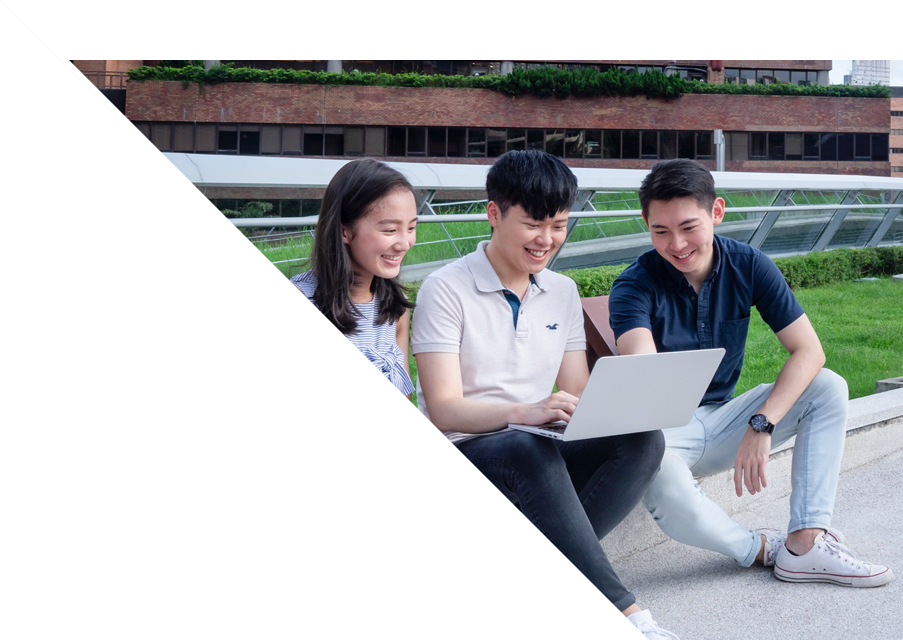Sept 2026 Entry
1 year (Full-time)
2.5 years (Part-time)
31
The Postgraduate Scheme in Rehabilitation Sciences comprises the following awards:
- MSc in Advanced Occupational Therapy 深造職業治療學理學碩士學位
- MSc in Advanced Physiotherapy 深造物理治療學理學碩士學位
- MSc in Advanced Rehabilitation Sciences 深造康復科學理學碩士學位
Not inviting applications
Not inviting applications
What's New

- Undergraduate

- Undergraduate
Programme Aims
To equip students with advanced knowledge and professional skills in physiotherapy or a chosen area of clinical specialism within physiotherapy, to enable them to meet changing needs in physiotherapy practice and contribute to the development of specialised practices.
To equip students with the lifelong ability to critically analyse and evaluate ongoing practice to enhance the quality of physiotherapy practice.
To foster students' knowledge and skills in physiotherapy or areas of clinical specialism relevant to the discipline, to improve professional competence in advanced physiotherapy practice.
Characteristics
To enhance the integration of people with injuries, dysfunctions and/or disabilities into mainstream society, rehabilitation practice should be extended from hospitals and rehabilitation centres to the clients’ homes and workplaces. Our MScAdPT equips physiotherapists with advanced knowledge and skills, with a strong theoretical and scientific foundation of evidence-based practice that is responsive to both personal and environmental factors encompassing primary to tertiary healthcare. Besides the Generic advanced physiotherapy stream, the programme offers a unique range of clinical specialisations in the practice of Neurology, Musculoskeletal and Sports, and Manual and Neuromusculoskeletal Physiotherapy. The specialism in Neurology Physiotherapy focuses on critical reviewing and integration of evidence-based practice to enhance clinical outcomes and practice, whilst specialisms in Musculoskeletal and Sports Physiotherapy, and Manual and Neuromusculoskeletal Physiotherapy focus on the integration of advanced professional knowledge and practice through clinical reasoning and practice.
Please note that this programme does not confer eligibility for registration with the Physiotherapists Board of Hong Kong.
To graduate in the programme, each student will be required to complete 31 credits to receive the award. These 31 credits are divided into three levels: 3 compulsory subjects (7 credits) and 1 project study (6 credits), 6 elective subjects for the generic programme (18 credits), and 6 subjects (elective, core and/or practice subjects) for each of the three specialisms (see table below).
|
Levels |
MScAdPT (Generic, without specialism) 51069-PTF/PTP
|
MScAdPT (Neurology) 51069-PNF/PNP |
MScAdPT (Musculoskeletal and Sports) 51069-SPF/SPP |
MScAdPT (Manual and Neuromusculoskeletal) 51069-MPF/MPP |
Credit values |
|---|---|---|---|---|---|
|
Compulsory subjects |
RS517 Research Methods and Data Analysis |
3 |
|||
|
RSXXX Diagnostic Procedures in Physiotherapy |
3 |
||||
|
HTI5T04 Academic Integrity and Ethics (Health and Social Sciences) |
1 |
||||
|
Project study |
RS567 Project Study |
6 |
|||
|
Core subjects for the three specialisms
|
|
RS5XXX Outcome Measures for Neurological Dysfunctions |
RS5216 Musculoskeletal Injury and Repair |
R5216 Musculoskeletal injury and repair |
3 |
|
RS5XXX Evidence-based Neurological Physiotherapy I |
RS553 Pain management: a multidimensional approach |
RS554 Physical Diagnosis of Neuro-Musculoskeletal Disorders |
3 |
||
|
RS5XXX Evidence-based Neurological Physiotherapy II |
RS581 Advanced Practice and Clinical Integration in Sports Physiotherapy |
RS555 Advanced Principle and Practice of Manual and Neuromusculoskeletal Physiotherapy (Lower Quarter) |
3 |
||
|
|
RS5210 Contemporary Issues in Exercise Science and Prescription |
R556 Advanced Principle and Practice of Manual and Neuromusculoskeletal Physiotherapy (Upper Quarter) |
3 |
||
|
Elective subjects [six elective subjects for the generic programme; three elective subjects for the Neurology specialism; no elective subjects for the Musculoskeletal and Sports / Manual and Neuromusculoskeletal specialisms] |
Students can choose six from all postgraduate subjects listed in the Department of Rehabilitation Sciences, on condition that they fulfill the pre-requisite of each subject they have selected, as the elective subjects. For example:
|
Students can choose three from all postgraduate subjects listed in the Department of Rehabilitation Sciences, on condition that they fulfill the pre-requisite of each subject they have selected, as the elective subjects. For example:
|
|
|
18 for the generic programme
9 for the Neurology specialism |
|
Clinical Practice subjects |
|
|
RS598 Practicum I in Sports Physiotherapy
RS599 Practicum II in Sports Physiotherapy |
RS5220 Advanced Manual and Neuromusculoskeletal Physiotherapy Practice I
RS5221 Advanced Manual and Neuromusculoskeletal Physiotherapy Practice II |
6 each for the Musculoskeletal and Sports / Manual and Neuromusculoskeletal specialisms |
31
Scheme Coordinator
Prof. Karen Liu
PDOT, BSc, MPhil, PhD, FOTARA, HKROT, OT Registered (AHPRA), OTR
Programme Leader
Prof. Sharon Tsang
PhD (RU), MMani Th (Curtin), MSc HC (PolyU), BSc PT (PolyU), FHKCOP (Musculoskeletal Physiotherapy)
(This Programme admits students in alternate years and will not invite applications for admission in 2026/27. For details, please refer to our department website https://www.polyu.edu.hk/rs/study/taught-postgraduate-studies/msc-programme/ from July 2025.)
-
A Bachelor’s degree in physiotherapy from PolyU or a recognised institution or the equivalent, preferably with one year of post-qualification work experience in physiotherapy;
OR -
A professional diploma in physiotherapy or related rehabilitation disciplines from PolyU or a recognised institution or the equivalent, with two years of work experience and evidence of continuous education over the past two years.
If you are not a native speaker of English, and your Bachelor's degree or equivalent qualification is awarded by institutions where the medium of instruction is not English, you are expected to fulfil the University’s minimum English language requirement for admission purpose. Please refer to the "Admission Requirements" section for details.
Individual cases will be considered on their own merit. Applicants may be required to attend interviews or tests to further demonstrate their language proficiency.
For academic matters, please contact:
Prof. Karen Liu
Tel: (852) 2766 5386
Email: karen.liu@polyu.edu.hk
For general matters, please contact:
General Office
Tel: (852) 2766 6728
Email: rsmsc@polyu.edu.hk
HK$7,400 per credit for local and non-local students
- CV
- Personal statement or a self-recommendation letter which includes self-introduction, career aspirations and reasons for pursuing study in the programme
- Copy of transcript / graduation certificate of relevant academic qualification
- Copy of certificate of relevant professional qualification
- Copy of English examination results, e.g. TOEFL, IELTS, if your Bachelor’s degree or equivalent qualification is awarded by institutions where the medium of instruction is not English



